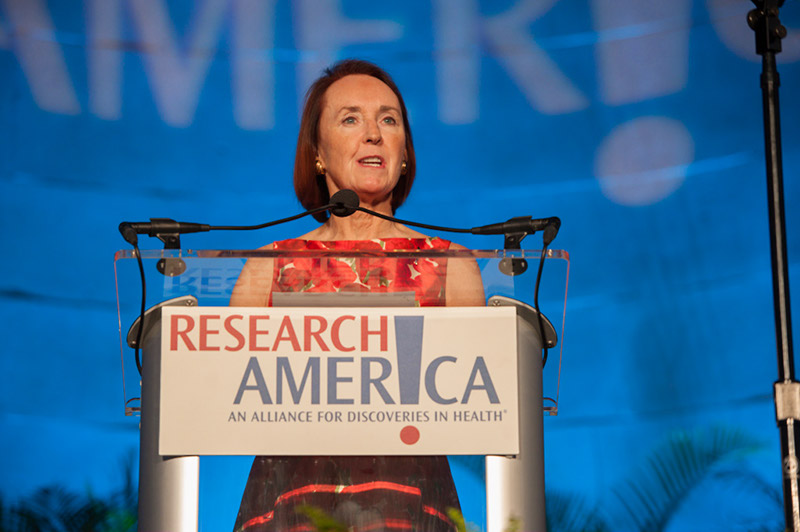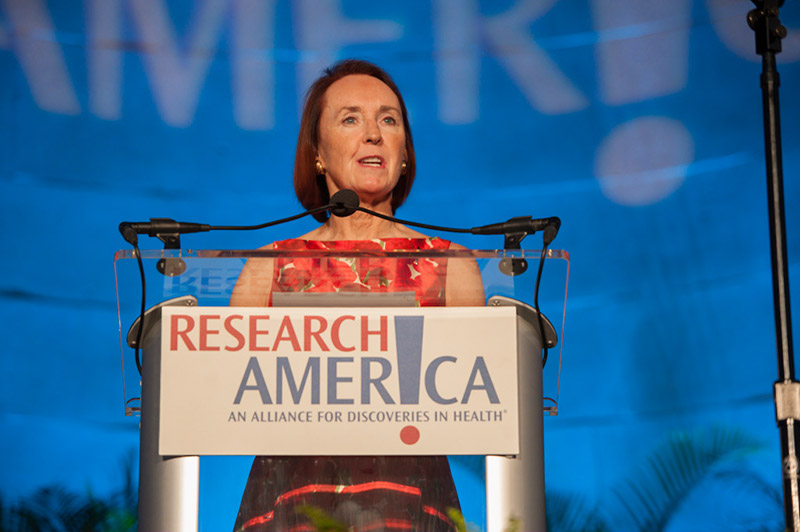Representation and Inclusion

 Dear Research Advocate,
Dear Research Advocate,
Today is World Health Day; it’s National Public Health Week; and National Minority Health Month as well – calling attention to how we are connected to each other. The COVID-19 pandemic has made the persistence of domestic and global health disparities more apparent; it is time to act!
Please use this editable email to let your representatives in Congress know a rock-solid public health system is important to their constituents!
Just In From the Hill: Leaders in both parties in the House and Senate have announced conferees on vital competitiveness legislation (H.R. 4521; S. 1260). Both bills include authorization for significant increases in the National Science Foundation (NSF) budget. Deliberations over the significant differences between the two bills (other than NSF funding) will begin when the House and Senate return from a two-week break on April 25.
If you missed last week’s CQ Roll Call / Science & Technology Action Committee event discussing competitiveness legislation and other S&T priorities, you can watch the recording. Important comments by Congressman Frank Lucas (R-OK) – now named as a conferee – are featured toward the conclusion of the program.
Also on the Hill – COVID Supplemental: This week the Senate debated a $10 billion supplemental appropriations bill to fund additional R&D, vaccines, and treatments for COVID-19. We advocated for a higher funding level to permit the fundamental research needed to address the next pandemic (viral threats have been surfacing more quickly than ever before in recorded history) and address global gaps in access to COVID interventions (read our briefing paper). Even at this lower funding level, this compromise legislation is meaningful and important. We will continue to push for bipartisan support and passage.
More on the Hill – PDUFA: The Senate HELP committee held a hearing on Tuesday on reauthorizing the FDA User Fee Agreements, a landmark law that transformed the FDA’s ability to assure the safety and efficacy of – and faster access to – new medical interventions. Debate around PDUFA VII, which must be reauthorized by September 30, 2022, has focused on areas of progress and regulatory variables crucial to the well-being of patients, including cell and gene therapy, real-world evidence, patient-focused drug development, and accelerated approval. For a fast-paced “101” on PDUFA VII, watch our March 28 expert panel discussion.
Patient-centered Research: An April 3 Washington Post article by Frances Stead Sellers looks at “How long covid is accelerating a revolution in medical research.” I take issue with the description of patients as “guinea pigs,” terminology that perpetuates the misperception that there is no benefit to patients from engaging in research other than as a “subject.” That said, I agree that higher patient engagement in the research process produces better results for patients and for science.
The author discusses the evolution of patient engagement, involvement, and advocacy that accelerated with the HIV/AIDS epidemic in the 1980s but which, arguably, did not progress beyond that crisis until the establishment of PCORI, the Patient Centered Outcomes Research Institute, in 2010. As Sellers notes, there is much more to be done and we can’t settle for the status quo.
Last week, we were joined by a highly effective leader in assuring “nothing about me without me” (a slogan originating with the South African disability movement): Barbara E. Bierer, M.D., Faculty Director of the Multi-Regional Clinical Trials Center of Brigham and Women’s Hospital and Harvard University. Dr. Bierer is leading a major initiative to advance patient access to the clinical research data they contribute. Watch the conversation.
Black Americans and Science: Pew Research Center released findings today from an in-depth project that included a survey and focus groups: “Black Americans Views of and Engagement With Science.” The report is an important read.
Among the findings is that, while Black Americans have mostly positive views of researchers’ competence, a majority is concerned about accountability and the potential for research misconduct. In an echo of “nothing about me without me,” the report notes “the importance of representation for Black Americans is a through-line seen across the topics covered in the survey.”
Annual Meeting: Join us on Thursday, April 21, from 1 – 2:15 p.m. ET for Research!America’s Annual Meeting of Members. With the spotlight on advocacy, we will hear from Senator Roy Blunt (R-MO) and patient advocate and CEO of the Sjögren’s Foundation, Janet Church.
Upcoming Alliance Discussion: How do health and the environment intersect? The answer bears on the health of us all, as well as the disparities in health and health care that continue to compromise the value of medical progress. Please carve out 45 minutes for an important, interactive discussion on Thursday, April 14, at 1:30 p.m. ET with Rick Woychik, Ph.D., Director of the National Institute of Environmental Health Sciences of the National Institutes of Health.
Stay well, stay safe, and stay connected.
Mary Woolley




